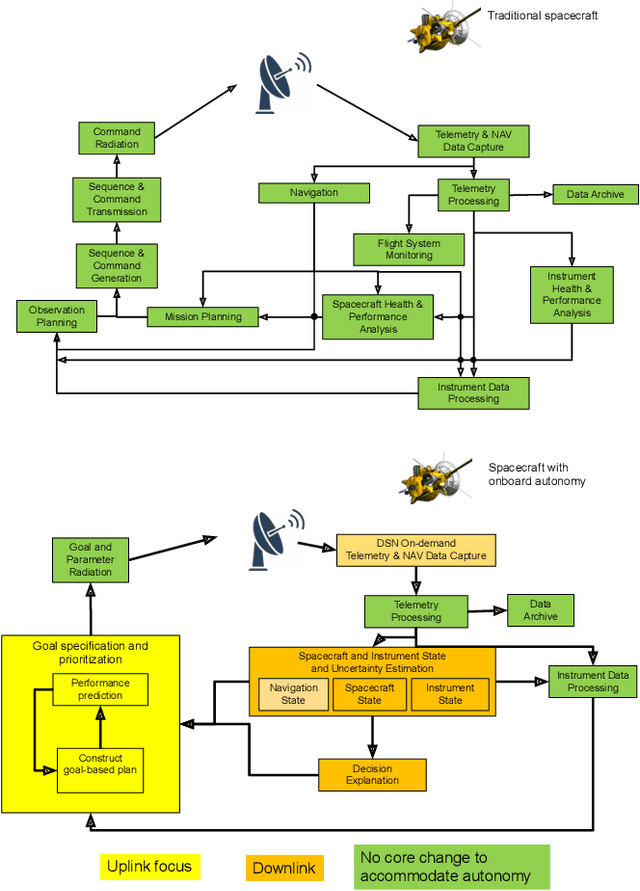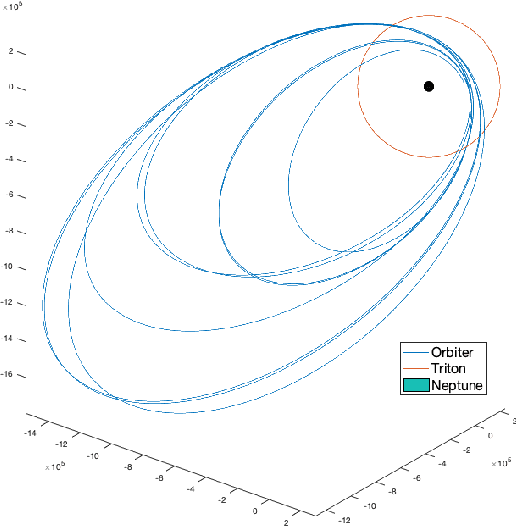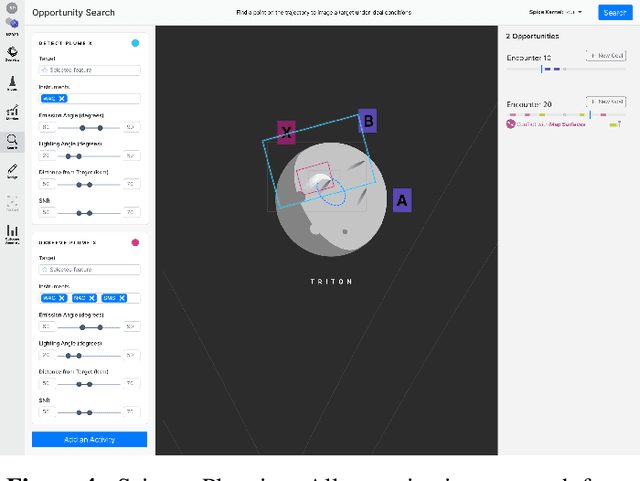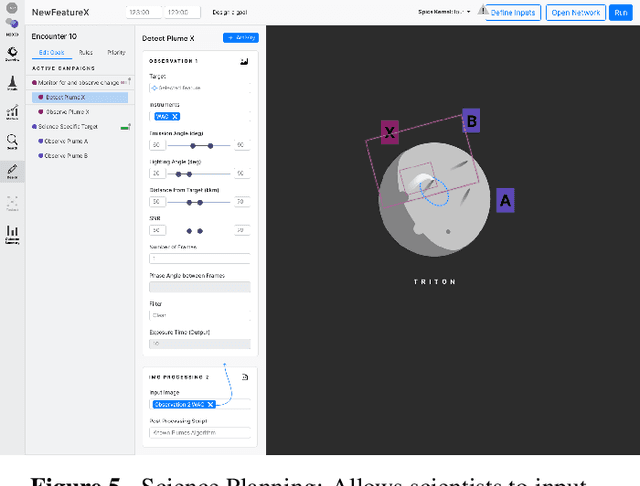Rashied Amini
Operations for Autonomous Spacecraft
Nov 22, 2021



Abstract:Onboard autonomy technologies such as planning and scheduling, identification of scientific targets, and content-based data summarization, will lead to exciting new space science missions. However, the challenge of operating missions with such onboard autonomous capabilities has not been studied to a level of detail sufficient for consideration in mission concepts. These autonomy capabilities will require changes to current operations processes, practices, and tools. We have developed a case study to assess the changes needed to enable operators and scientists to operate an autonomous spacecraft by facilitating a common model between the ground personnel and the onboard algorithms. We assess the new operations tools and workflows necessary to enable operators and scientists to convey their desired intent to the spacecraft, and to be able to reconstruct and explain the decisions made onboard and the state of the spacecraft. Mock-ups of these tools were used in a user study to understand the effectiveness of the processes and tools in enabling a shared framework of understanding, and in the ability of the operators and scientists to effectively achieve mission science objectives.
Advancing the Scientific Frontier with Increasingly Autonomous Systems
Sep 15, 2020Abstract:A close partnership between people and partially autonomous machines has enabled decades of space exploration. But to further expand our horizons, our systems must become more capable. Increasing the nature and degree of autonomy - allowing our systems to make and act on their own decisions as directed by mission teams - enables new science capabilities and enhances science return. The 2011 Planetary Science Decadal Survey (PSDS) and on-going pre-Decadal mission studies have identified increased autonomy as a core technology required for future missions. However, even as scientific discovery has necessitated the development of autonomous systems and past flight demonstrations have been successful, institutional barriers have limited its maturation and infusion on existing planetary missions. Consequently, the authors and endorsers of this paper recommend that new programmatic pathways be developed to infuse autonomy, infrastructure for support autonomous systems be invested in, new practices be adopted, and the cost-saving value of autonomy for operations be studied.
Integrating Machine Learning for Planetary Science: Perspectives for the Next Decade
Jul 29, 2020


Abstract:Machine learning (ML) methods can expand our ability to construct, and draw insight from large datasets. Despite the increasing volume of planetary observations, our field has seen few applications of ML in comparison to other sciences. To support these methods, we propose ten recommendations for bolstering a data-rich future in planetary science.
 Add to Chrome
Add to Chrome Add to Firefox
Add to Firefox Add to Edge
Add to Edge